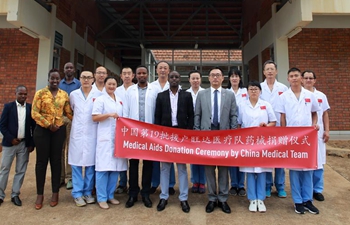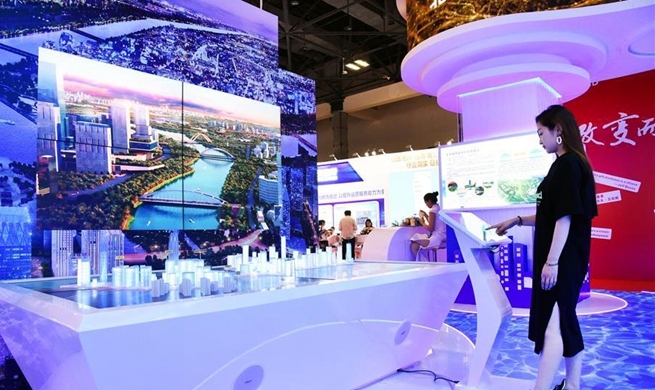TOKYO, May 30 (Xinhua) -- Around 50 percent of almost 500 companies surveyed who are operating in central Tokyo have yet to make contingencies to deal with a surge in traffic congestion expected during the 2020 Tokyo Olympic and Paralympic Games, the Tokyo Chamber of Commerce and Industry said Thursday.
According to the survey conducted in March by the chamber of commerce, of 475 businesses who responded to the survey, 44.3 percent of them said that while they recognize the need to take preemptive action to deal with the congestion, they have yet to lay down plans.
The Tokyo Organizing Committee of the Olympic and Paralympic Games has said that it predicts that traffic congestion during the Olympics next year in the capital will be double that of a normal year, if preemptive steps are not taken to address the potential problem.
But while more than 80 percent of respondents to the survey indicated a willingness to changing their operational protocols to help alleviate congestion on the roads, some companies said they had more immediate issues to deal with, such as the consumption tax hike from 8 to 10 percent in Japan, planned to go into effect from October.
The Games' organizing committee has suggested that companies could address the surge in congestion in the capital by implementing new working structures, such as allowing staff to work from home or remotely and rotating working hours and shifts.
Other means to lessen congestion suggested by the committee included delivery services using vehicles to deliver their goods, operate during low-peak hours and by using alternative traffic routes.
The companies polled, however, have outlined the difficulties facing them related to preparing to deal with a surge in congestion, with the majority of the businesses saying that they expect securing personnel during off-peak hours to be problematic.
They also predominantly noted that in terms of their customers, they expected difficulties in ensuring their cooperation and understanding if logistical changes lead to schedules and services being disrupted or delayed.
Some companies also pointed out that they are already facing labor shortages due to Japan's ever-tightening job market amid a rapidly aging and shrinking population, and preparations to circumnavigate traffic congestion would likely add additional costs to ongoing burdens.













